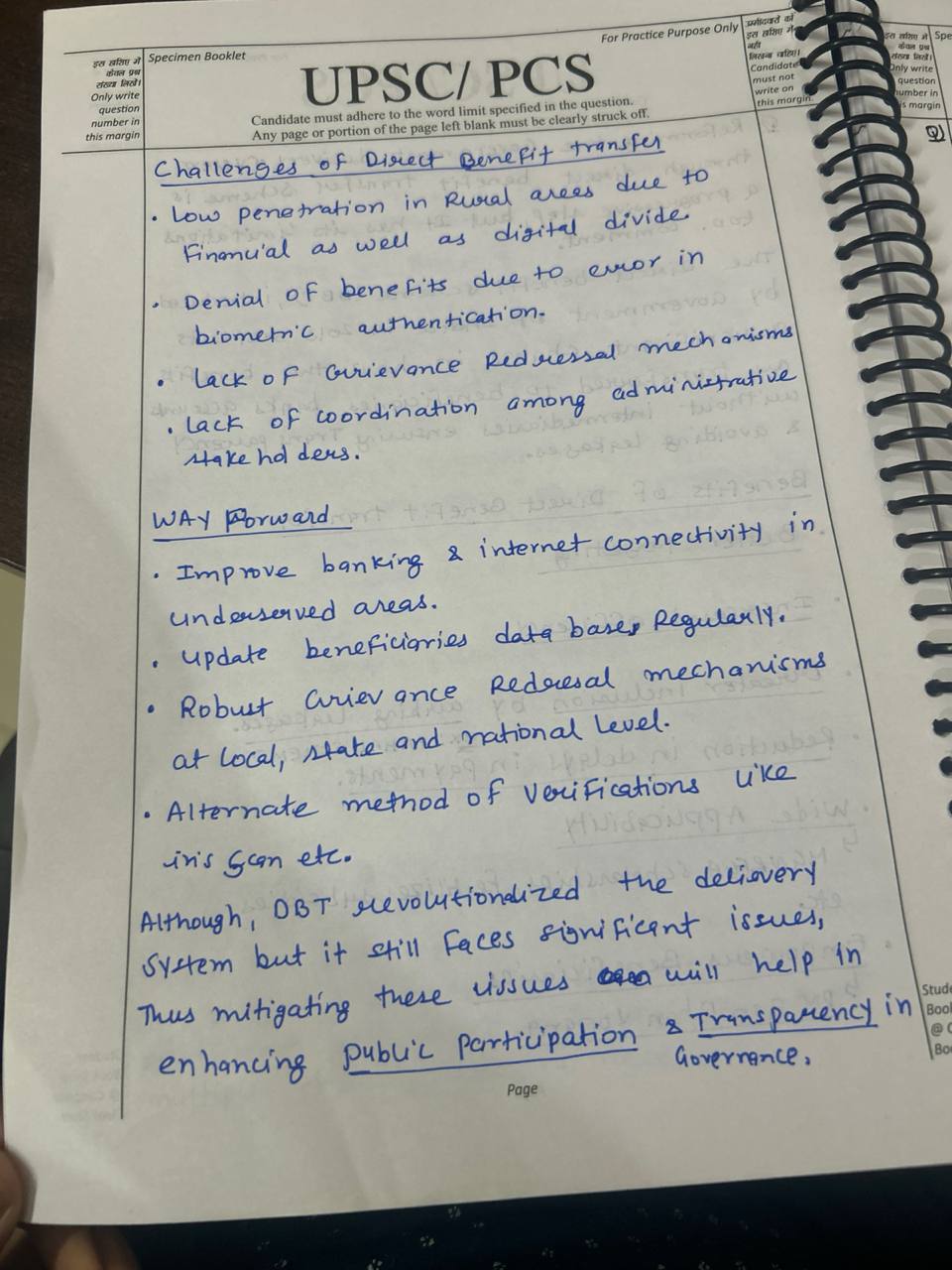Home/system
- Recent Questions
- Most Answered
- Answers
- No Answers
- Most Visited
- Most Voted
- Random
- Bump Question
- New Questions
- Sticky Questions
- Polls
- Followed Questions
- Favorite Questions
- Recent Questions With Time
- Most Answered With Time
- Answers With Time
- No Answers With Time
- Most Visited With Time
- Most Voted With Time
- Random With Time
- Bump Question With Time
- New Questions With Time
- Sticky Questions With Time
- Polls With Time
- Followed Questions With Time
- Favorite Questions With Time

Reforming the government


See lesswhy the cyber security is important for any country's integrity ?
Cybersecurity is crucial for a country's integrity for several reasons: 1. National security: Protects critical infrastructure and sensitive government data from foreign threats and espionage. 2. Economic stability: Safeguards financial systems, intellectual property, and business operations from cyRead more
Cybersecurity is crucial for a country’s integrity for several reasons:
1. National security: Protects critical infrastructure and sensitive government data from foreign threats and espionage.
2. Economic stability: Safeguards financial systems, intellectual property, and business operations from cyber attacks.
3. Democracy protection: Ensures the integrity of electoral systems and prevents foreign interference in political processes.
4. Public safety: Protects essential services like power grids, water systems, and healthcare from disruptions.
5. Military defense: Secures military communications and weapon systems from cyber warfare.
6. Data privacy: Protects citizens’ personal information from breaches and unauthorized access.
7. Technological advancement: Encourages innovation by creating a secure environment for research and development.
8. International relations: Maintains trust and cooperation with allies in sharing sensitive information.
9. Crisis management: Enables effective response to cyber incidents and natural disasters.
10. Economic competitiveness: Attracts foreign investment by demonstrating a secure business environment.
11. Legal and regulatory compliance: Ensures adherence to international cybersecurity standards and agreements.
12. Reputation management: Protects the country’s image and credibility on the global stage.
By prioritizing cybersecurity, a country safeguards its sovereignty, economic interests, and citizens’ well-being in an increasingly digital world.
See lesswhy the cyber security is important for any country's integrity ?
Blockchain technology can greatly improve cybersecurity because of its decentralized and unchangeable nature. In a blockchain, each block contains a record of transactions that is securely linked to the previous block, forming a chain that is very hard to alter. This makes sure the data stays intactRead more
Blockchain technology can greatly improve cybersecurity because of its decentralized and unchangeable nature. In a blockchain, each block contains a record of transactions that is securely linked to the previous block, forming a chain that is very hard to alter. This makes sure the data stays intact since any attempt to change the information would require altering all subsequent blocks, which is nearly impossible.
See lessDecentralization is another important feature for security. Unlike traditional centralized systems, blockchain spreads data across a network of nodes. This reduces the risk of a single point of failure and makes it harder for hackers to compromise the system since they would need to attack multiple nodes at once.
Blockchain also improves authentication processes. By using cryptographic keys, it ensures that only authorized users can access sensitive information. This cryptographic validation is very secure, reducing the risk of unauthorized access and identity theft.
Additionally, blockchain enhances transparency and traceability. Every transaction is recorded and time-stamped, creating a clear and verifiable trail of data. This helps detect and prevent fraudulent activities, as any suspicious transactions can be easily traced and verified.
Overall, the key features of blockchain technology—unchangeable records, decentralization, cryptographic security, and transparency—significantly boost cybersecurity, making systems more secure and resistant to attacks.
What about you think today's education system? What should we improve in the system?
Today's education system often emphasizes standardized testing over holistic learning. To improve, we should prioritize personalized learning that caters to diverse student needs and fosters critical thinking and creativity. Digital literacy should be integrated early, preparing students for a technRead more
Today’s education system often emphasizes standardized testing over holistic learning. To improve, we should prioritize personalized learning that caters to diverse student needs and fosters critical thinking and creativity. Digital literacy should be integrated early, preparing students for a technology-driven world. Social and emotional skills must receive more attention alongside academics. Continuous teacher professional development is crucial to keep pace with educational advancements. We need equitable access to resources and support, ensuring all students receive a quality education. Reforming assessments to include more authentic measures of learning is essential. Emphasizing collaborative learning and community involvement can enrich student experiences. Lastly, aligning education with future workforce needs will better prepare students for career success. By addressing these areas, we can create a more inclusive, engaging, and effective education system that meets the needs of all learners.
See lessHow can we make better education system?
To build a better education system, several key improvements can be made. First, **personalized learning** should be prioritized, using technology to tailor education to each student's needs and learning styles. This includes adaptive tools that adjust to individual progress. Second, **investRead more
To build a better education system, several key improvements can be made. First, **personalized learning** should be prioritized, using technology to tailor education to each student’s needs and learning styles. This includes adaptive tools that adjust to individual progress.
Second, **invest in teacher training** to ensure educators are up-to-date with modern teaching methods and technologies. Ongoing professional development helps teachers effectively engage students and manage their classrooms.
Third, update the **curriculum** to include relevant and inclusive content. Focus on integrating critical thinking, problem-solving, and practical skills, alongside traditional subjects, to make education more applicable to real-life scenarios.
Fourth, **integrate technology** effectively. Digital tools can enhance learning experiences by making them more interactive and engaging. However, it is crucial to ensure all students have equitable access to these resources.
Fifth, **improve assessment methods** by using diverse approaches to evaluate student understanding. Move beyond traditional tests to include assessments that better measure students’ skills and knowledge.
Finally, strengthen **support systems** such as tutoring and counseling, and actively involve **parents and communities** in the education process to create a more supportive learning environment.
See lessWhat skills do students need to develop to succeed in a rapidly changing,tech driven word
In a rapidly changing, tech-driven world, students need to develop a broad set of skills to succeed. These include: ### Technical Skills 1. **Coding and Programming**: Understanding the basics of coding and software development. 2. **Data Literacy**: Ability to interpret and analyze data effeRead more
In a rapidly changing, tech-driven world, students need to develop a broad set of skills to succeed. These include:
### Technical Skills
1. **Coding and Programming**: Understanding the basics of coding and software development.
2. **Data Literacy**: Ability to interpret and analyze data effectively.
3. **Cybersecurity Awareness**: Understanding how to protect personal and organizational data.
4. **Digital Literacy**: Proficiency in using digital tools and platforms.
### Cognitive Skills
1. **Critical Thinking**: Analyzing situations, identifying problems, and coming up with logical solutions.
2. **Creativity and Innovation**: Thinking outside the box and developing new ideas or products.
3. **Problem-Solving**: Identifying problems and devising practical, effective solutions.
4. **Adaptability**: Being flexible and open to change, and learning new skills as needed.
### Social and Emotional Skills
1. **Collaboration**: Working effectively in teams, both in person and virtually.
2. **Communication**: Strong written and verbal communication skills, including the ability to convey technical information to non-technical audiences.
3. **Emotional Intelligence**: Understanding and managing one’s emotions, as well as empathizing with others.
4. **Resilience**: Ability to bounce back from setbacks and persist in the face of challenges.
### Lifelong Learning Skills
1. **Curiosity**: A desire to continuously learn and explore new fields.
2. **Self-Directed Learning**: Taking initiative in one’s own education and skill development.
3. **Time Management**: Prioritizing tasks and managing time effectively to balance work and personal life.
### Ethical and Responsible Use of Technology
1. **Digital Ethics**: Understanding the ethical implications of technology and using it responsibly.
2. **Global Awareness**: Understanding global issues and the impact of technology on different cultures and societies.
By developing these skills, students will be better prepared to navigate the complexities and opportunities of a tech-driven world
See less